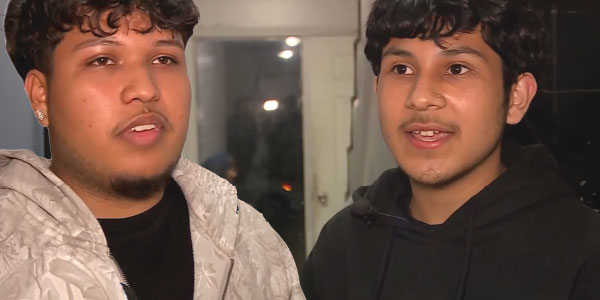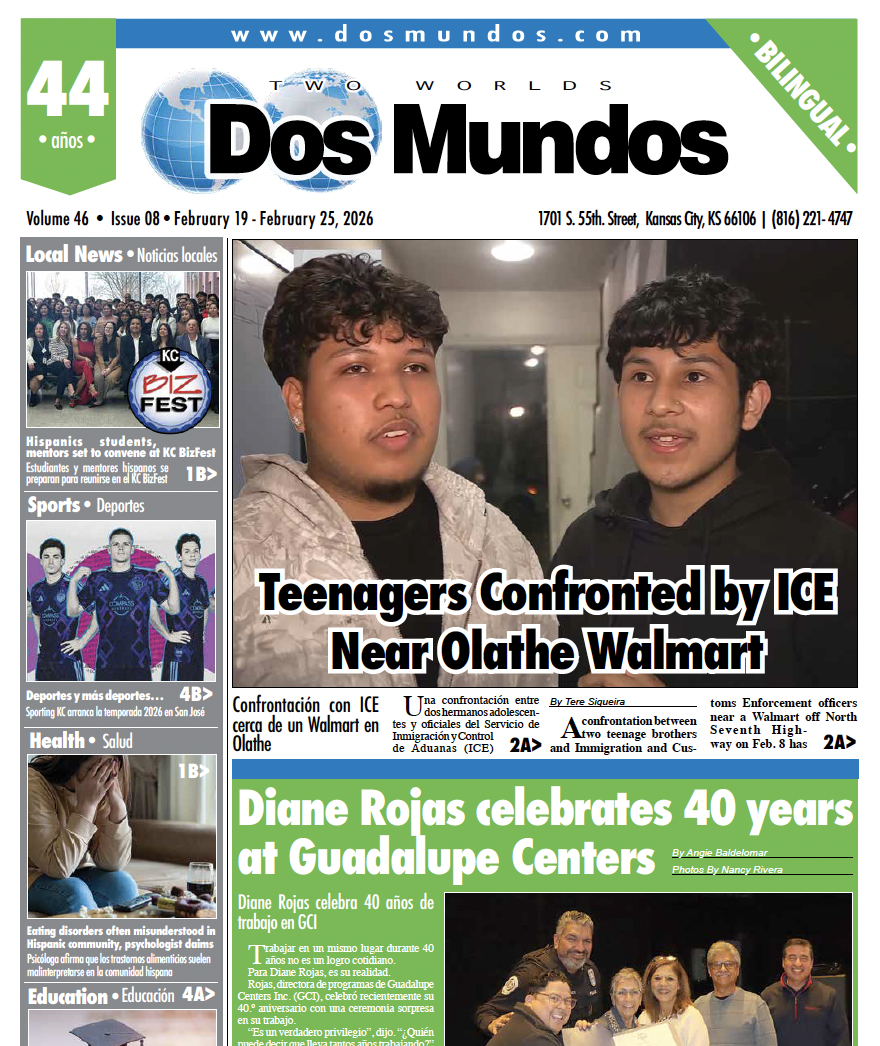
By Angie Baldelomar
Starting Thursday (March 12), U.S. households will receive an invitation by mail asking them to respond to the 2020 census.
The mailings will be staggered, going out from March 12 to 20 to avoid overwhelming the self-response website and telephone helpline. About 80 percent of households receiving the mailings will be encouraged to answer the questionnaire online.
The other 20 percent will receive a paper questionnaire that can be mailed back. This will go to people living in neighborhoods with low internet access or large numbers of seniors.
The decennial national headcount is used to determine how federal funding flows into states and communities each year, and how many seats in Congress each state gets, among other things.
Aude Negrete, Kansas Hispanic and Latino American Affairs executive director, highlights the importance of responding to the census.
“If there’s only 20 people that answer the census in a community of 100, then there’s only going to be services for 20 people and our community is not going to be as prosperous because the services are not true for the number in the community,” Negrete said.
People can answer online, by mail or by telephone. Besides English, respondents can answer the census questionnaire in Spanish, simplified Chinese, traditional Chinese, Vietnamese, Korean, Russian, Arabic, Tagalog, Polish, French, Haitian Creole, Portuguese and Japanese.
The U.S. Census Bureau recommends that people, particularly the elderly, be aware of potential scams and assures that the bureau does not send out unsolicited emails. The Census Bureau also will never ask for Social Security numbers, license numbers or financial information.
The Trump administration wanted to add a citizenship question to the 2020 census, but the U.S. Supreme Court blocked the question last year. For immigrants still concerned about filling out the census, Negrete reminds people that confidentiality is key for the census.
“The census cannot release your information to anyone,” she said. “It’s actually a crime and they could go to jail if they were to release that information.”
Negrete also encouraged everyone to reply to the census as soon as possible, so they do not forget to do so. If people fail to reply by May, the Census Bureau will send out workers to knock on the doors of households that have not replied.
For more information, visit https://2020census.gov/en/about-questions.html.
Se inicia el último censo de Estados Unidos
Comenzando el jueves (12 de marzo), los hogares estadounidenses recibirán una invitación por correo pidiéndoles que respondan al censo de 2020.
Los correos serán escalonados, y se enviarán del 12 al 20 de marzo para evitar abrumar el sitio web de auto-respuesta y la línea telefónica de ayuda. Se alentará a alrededor del 80 por ciento de los hogares que reciben los correos a responder el cuestionario en línea.
El otro 20 por ciento recibirá un cuestionario en papel que se puede enviar por correo. Esto se destinará a personas que viven en lugares con bajo acceso a internet o con un gran número de personas mayores.
El recuento nacional decenal se utiliza para determinar cómo los fondos federales fluyen a los estados y las comunidades cada año, y cuántos escaños en el Congreso obtiene cada estado, entre otras cosas.
Aude Negrete, directora ejecutiva de Asuntos Hispanos y Latinoamericanos de Kansas, destaca la importancia de responder al censo.
“Si sólo hay 20 personas que responden al censo en una comunidad de 100, entonces sólo habrá servicios para 20 personas y nuestra comunidad no será tan próspera porque los servicios no reflejan el número real de la comunidad”, dijo Negrete.
Las personas pueden responder en línea, por correo o por teléfono. Además del inglés, los encuestados pueden responder el cuestionario del censo en español, chino simplificado, chino tradicional, vietnamita, coreano, ruso, árabe, tagalo, polaco, francés, criollo haitiano, portugués y japonés.
La Oficina del Censo recomienda que las personas, en particular las personas mayores, estén al tanto de posibles estafas y asegura que la oficina no envía correos electrónicos no solicitados. La Oficina del Censo nunca solicitará números de Seguro Social, números de licencia o información financiera.
La administración de Trump quería agregar una pregunta de ciudadanía al censo de 2020, pero la Corte Suprema del país bloqueó la pregunta el año pasado. Para los inmigrantes que todavía están preocupados por completar el censo, Negrete recuerda a las personas que la confidencialidad es clave para el censo.
“El censo no puede divulgar su información a nadie”, dijo. “En realidad es un delito y podrían ir a la cárcel si divulgaran esa información”.
Negrete también alentó a todos a responder al censo lo antes posible, para que no se olviden de hacerlo. Si la gente no responde hasta mayo, la Oficina del Censo enviará trabajadores para que toquen las puertas de los hogares que no han respondido.
Para obtener más información, visite https://2020census.gov/en/about-questions.html.










